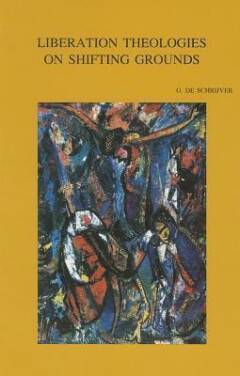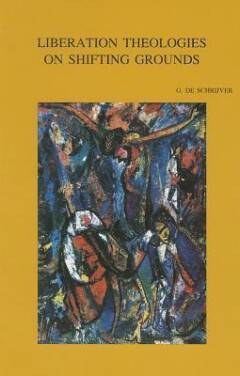
- Afhalen na 1 uur in een winkel met voorraad
- Gratis thuislevering in België vanaf € 30
- Ruim aanbod met 7 miljoen producten
- Afhalen na 1 uur in een winkel met voorraad
- Gratis thuislevering in België vanaf € 30
- Ruim aanbod met 7 miljoen producten
Zoeken
Liberation Theologies on Shifting Grounds
A Clash of Socio-Economic and Cultural Paradigms
G de Schrijver
€ 52,06
+ 104 punten
Omschrijving
Besides their insistence on praxis and the application of the Word of God to a given situation, Liberation Theologies make ample use of tools of analysis to uncover root causes of oppression. Now, it is precisely with respect to these tools that Liberation Theologies today find themselves on shifting grounds. In intra-ecclesiastical circles cultural concerns have come to replace socio-economic analysis, whereas after the implosion of the East Bloc the liberationists proper also pay more attention to the issues of gender, ecology, and indigenous movements. The contributions to this volume, originating from various continents, discuss to what extent this shift in emphasis is desirable, and acceptable, and conclude that the cultural focus cannot possibly invalidate but only enrich and complete the socio-economic analysis. They, moreover, try to assess the developments in light of globalization (economics, informatics), on the one hand, and postmodernity on the other. Given the impact of western culture politics, the question arises as to whether the native cultures will succeed in keeping up their religious core values and structures of solidarity - two elements so indispensable for liberative commitments.
Specificaties
Betrokkenen
- Auteur(s):
- Uitgeverij:
Inhoud
- Aantal bladzijden:
- 453
- Taal:
- Engels
- Reeks:
Eigenschappen
- Productcode (EAN):
- 9789042903029
- Verschijningsdatum:
- 1/01/1998
- Nieuwere uitgave:
- Uitvoering:
- Paperback
- Formaat:
- Trade paperback (VS)
- Afmetingen:
- 163 mm x 241 mm
- Gewicht:
- 771 g

Alleen bij Standaard Boekhandel
+ 104 punten op je klantenkaart van Standaard Boekhandel
Beoordelingen
We publiceren alleen reviews die voldoen aan de voorwaarden voor reviews. Bekijk onze voorwaarden voor reviews.











